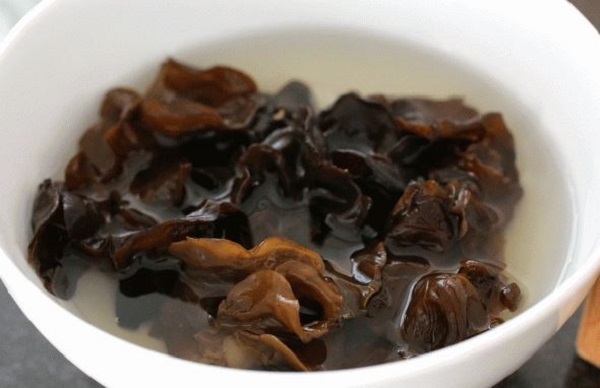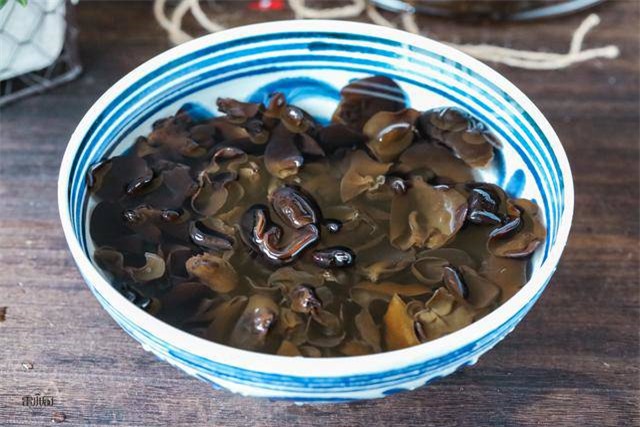Dried cat mushrooms, also known as wood ears, are a common ingredient in cooking. Many people mistakenly believe that simply soaking the wood ears in water is enough, but it’s not adequate.
Here are three mistakes to avoid when using wood ears in your cooking, as they can inadvertently introduce diseases into your body.
3 Mistakes to Avoid When Using Wood Ears
Soaking the Wood Ears for Too Long
Soaking the wood ears before cooking is necessary, but they should not be soaked for too long. Prolonged soaking causes the protein in the wood ears to break down, leading to spoilage, bacterial invasion, and toxicity.
To preserve the nutrients and prevent the production of harmful substances, it is recommended to soak the wood ears in cold water for a maximum of 15-20 minutes.

Do not soak the wood ears for more than 20 minutes
Soaking the Wood Ears in Hot Water
Using hot water to soak wood ears can quickly soften them, but it does not allow enough time for toxic substances like Morpholine to dissolve and escape. Moreover, hot water causes the wood ears to expand quickly but absorb less water, resulting in smaller volumes. Hot water also makes the wood ears sticky and mushy, affecting their taste after cooking.

Use cold water to soak the wood ears
Not Washing the Wood Ears Thoroughly After Soaking
After soaking, it is essential to thoroughly wash the wood ears to fully enjoy their flavor and ensure food safety.
You can wash the wood ears under strong running water, scrub them thoroughly, or soak them in lukewarm water with 2 tablespoons of flour. Use your hands to gently stir and scrub the wood ears to remove dirt and dust from the gaps. For hard-to-clean areas, it is recommended to cut the wood ears into smaller pieces for more thorough cleaning.

After soaking the wood ears, you still need to wash them
These are common mistakes that people often overlook when using wood ears. While consuming them occasionally may not have a significant impact, regularly making these three mistakes can be harmful to your health!
Wood ears are a nutritious food rich in proteins, starch, and safe fats. Here are some benefits of wood ears that you may not be aware of:
1. Contains Powerful Antioxidants
Wood ears are rich in polyphenol antioxidants, which help combat oxidative stress, inflammation, and various diseases. A diet high in polyphenols also reduces the risk of cancer and chronic diseases, including metabolic cardiovascular diseases.
2. Supports Gut Health and the Immune System
Wood ears, like other mushrooms, contain prebiotics, mainly in the form of beta-glucans. Prebiotics are fibers that promote a healthy gut microbiota and increase the proportion of beneficial bacteria. These substances improve digestive health, maintain regular bowel movements, and enhance immune response.
3. Reduces Bad Cholesterol Levels
The polyphenols in wood ears can help lower LDL cholesterol, reducing the risk of heart disease.

































